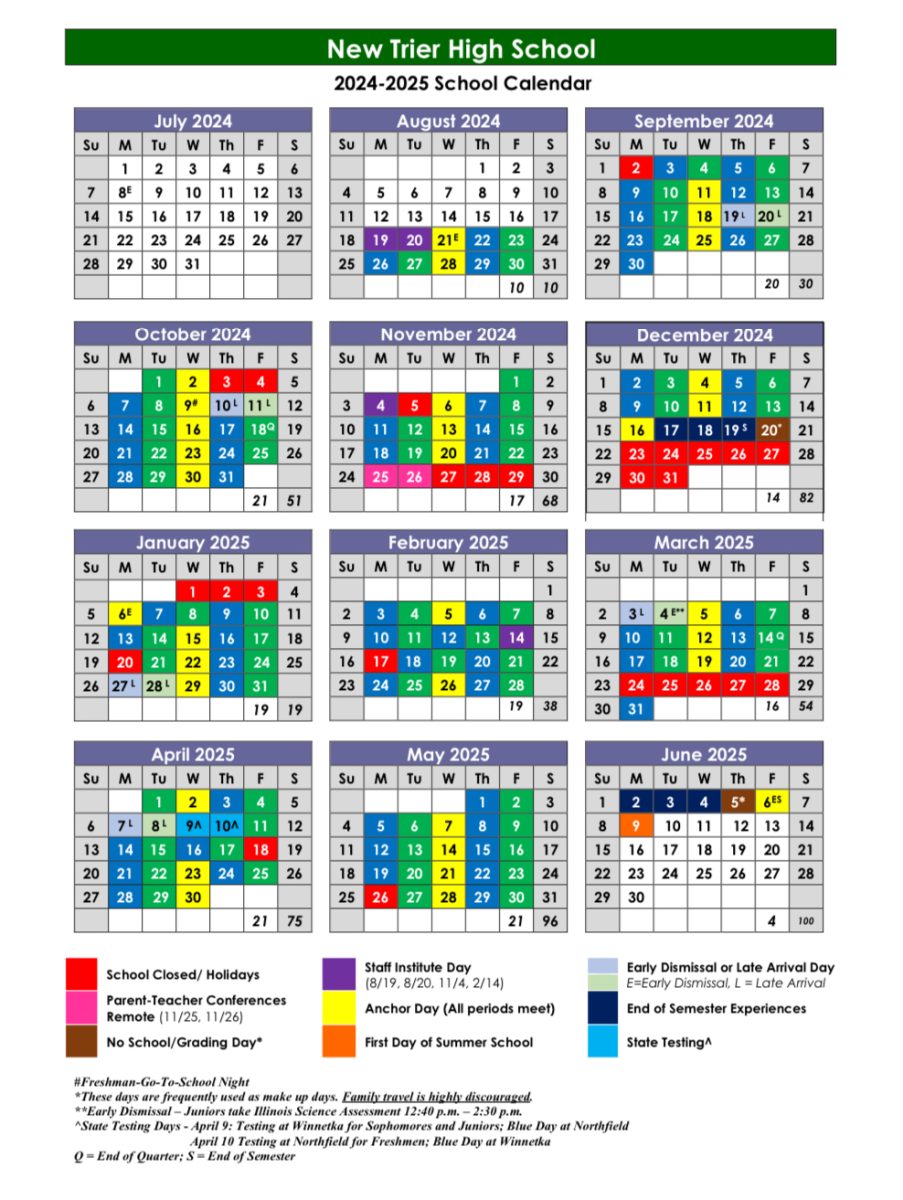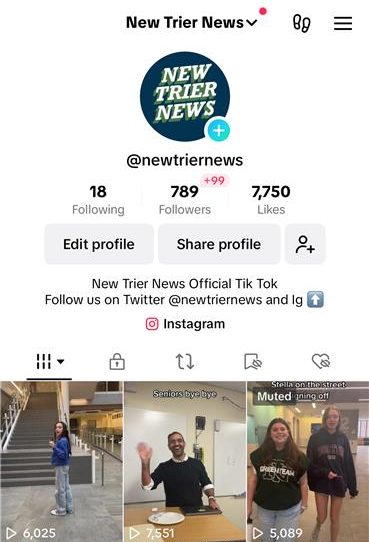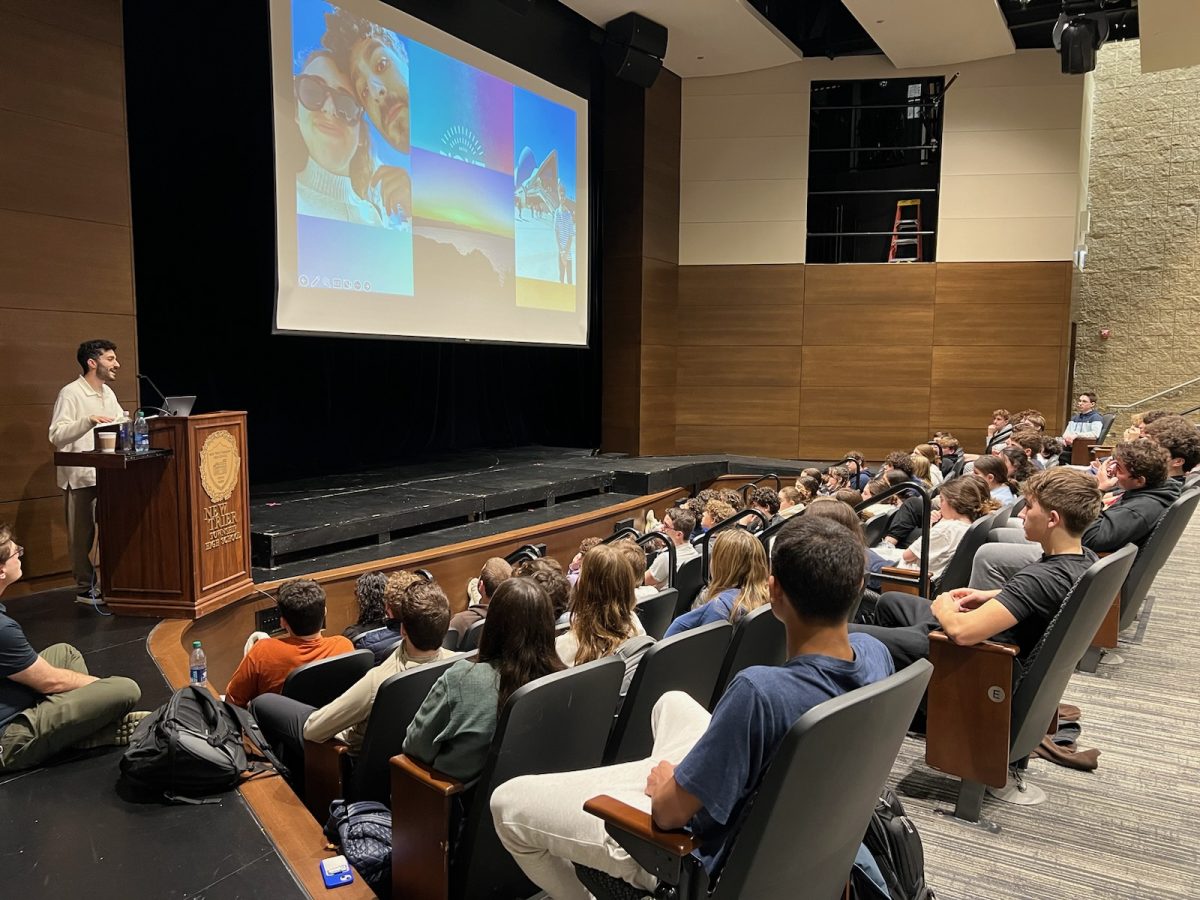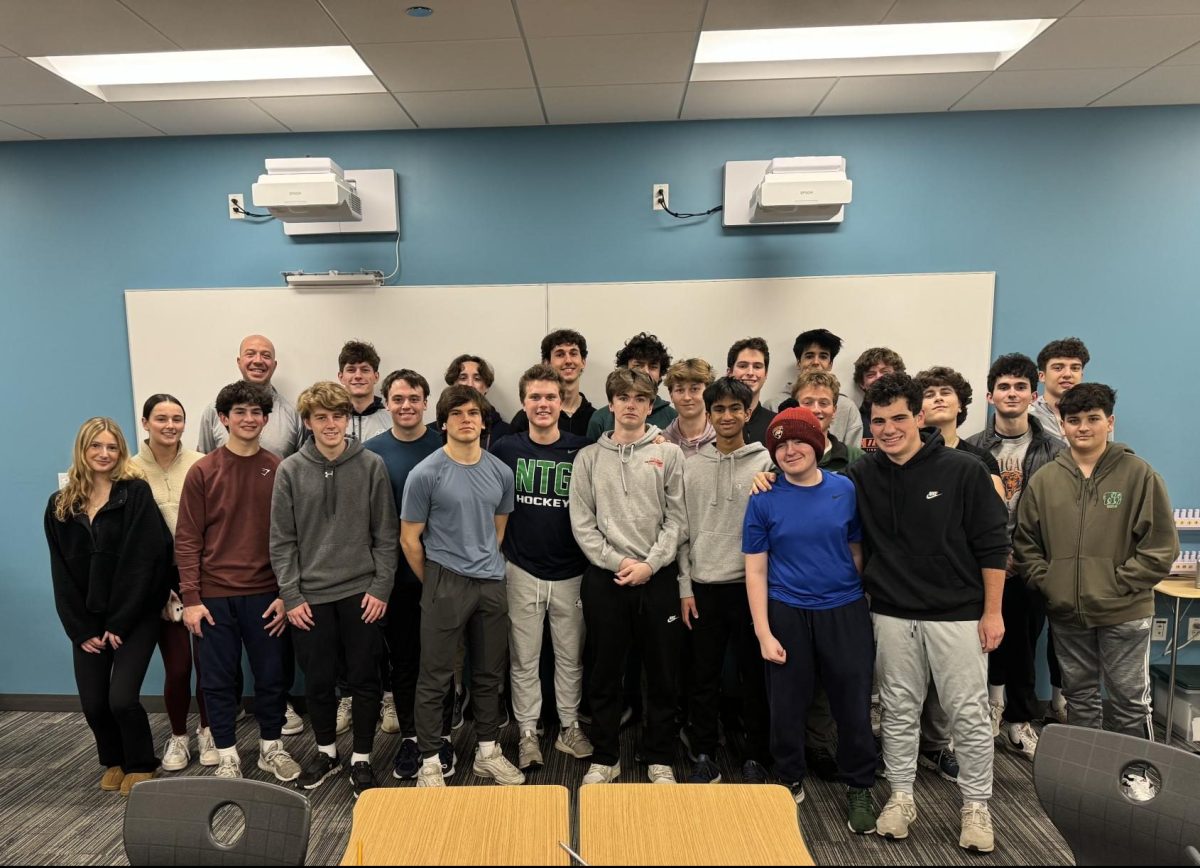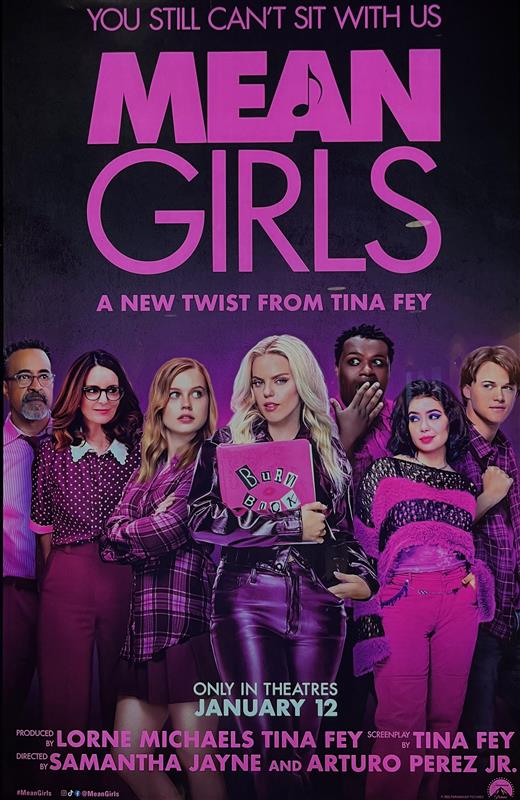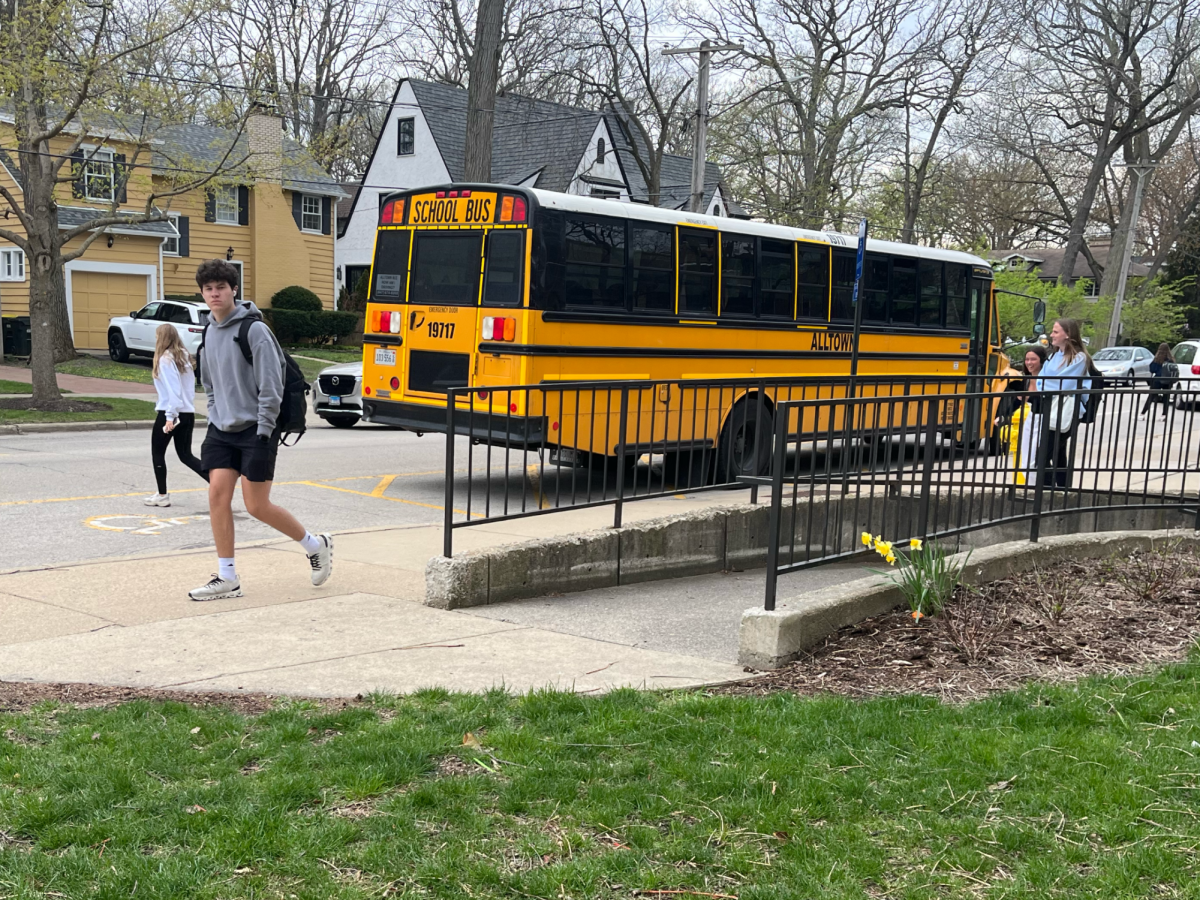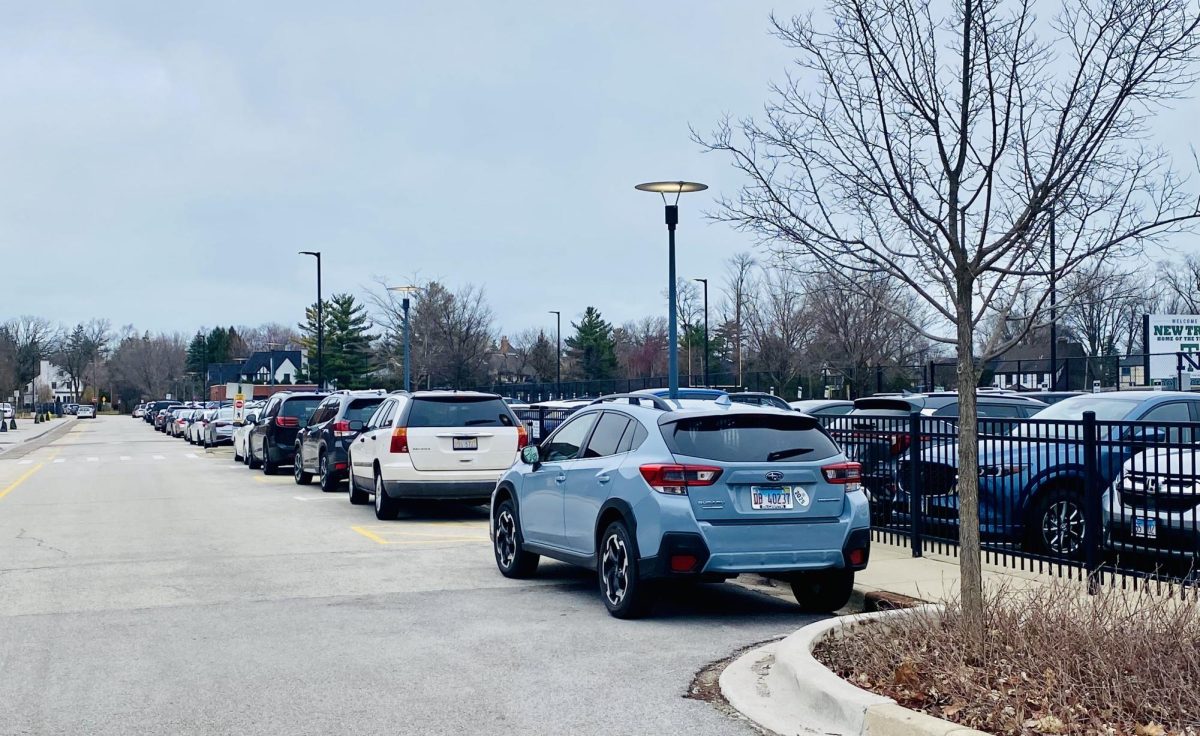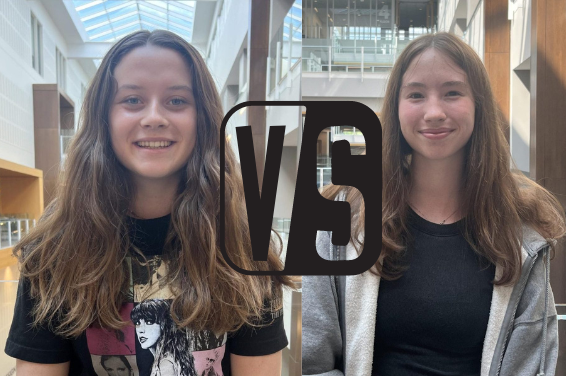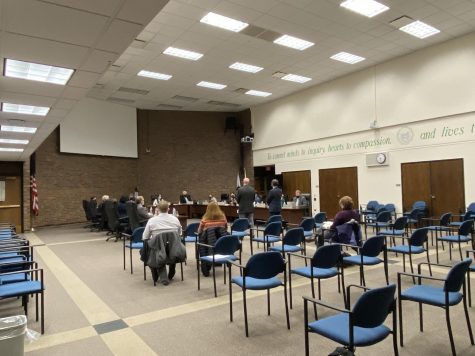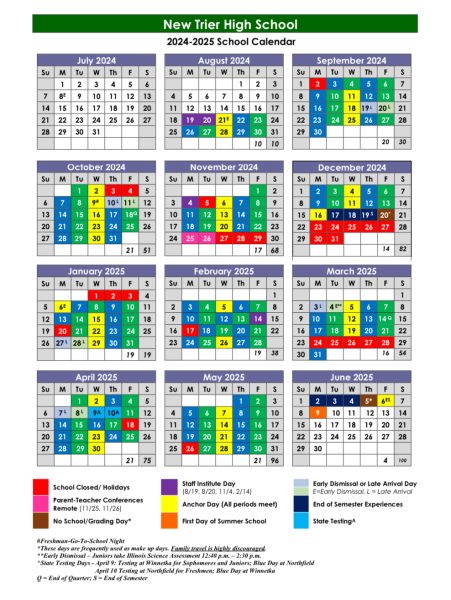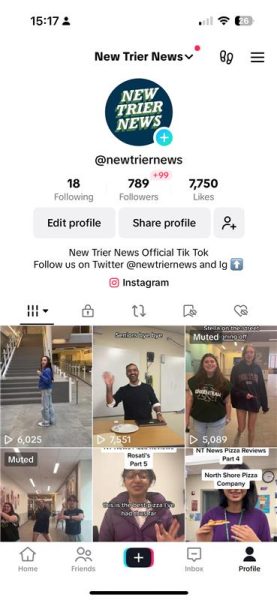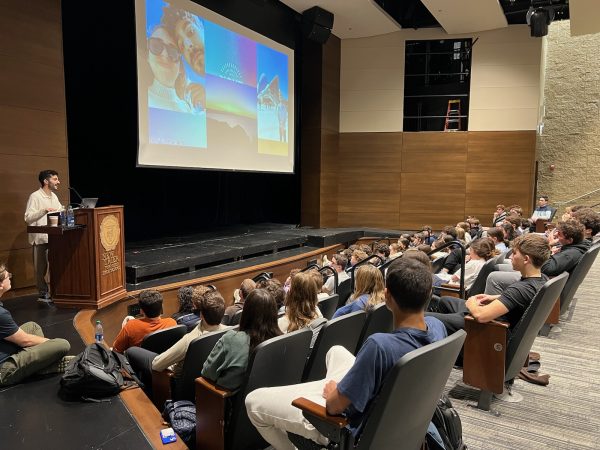Advisers, incoming freshmen endorse coed adviseries
Many see benefits and cheer the change to mixed gender adviser system
The implementation of improved sexual assault education within adviseries is vital for ensuring a safe and positive school environment
New Trier’s plan to allow incoming freshmen the option to be in a coed advisery has been well- received by students and advisers.
I don’t think being in a single gender advisery would be a difficult transition, but I definitely think it might be a transition for me, because I’ve just never had it like that before.
— Bennett Waters
The plan, which was unanimously approved by the Board of Education at their Nov. 5 meeting, will give the Class of 2026 a choice between coed and single gender adviseries, as well as a “no preference” option.
Bennett Waters, a current eighth grader at the Washburne School in Winnetka, says that he hasn’t made his decision yet but is leaning towards a coed advisery since that is what he is used to.
“At Washburne and even at the school before, Skokie School, my advisories and my homerooms have always been coed, so it might make sense for me to continue with that to get used to New Trier,” said Waters.
Waters says that changing from what he is used to would be manageable, but it would definitely feel different.
“I don’t think being in a single gender advisery would be a difficult transition, but I definitely think it might be a transition for me, because I’ve just never had it like that before,” he said.
Waters also said he has no preference between a male or female adviser.
Eighth grader Clementine Frazer, who also attendsWashburne, says that she would rather be in an all-girls advisery.
“I would prefer a single gender [advisery] because I would like to be able to get advice from other girls.
Though she included that if it weren’t to happen, “it wouldn’t be a big deal.”
Given the option, however, she would feel more comfortable having a female adviser.
“For me at least, I like having a female adviser that I can actually talk to. In the past I have gone to my adviser for things, so I think it just would help me to feel more open.”
Frazer thinks that the change is much-needed.
“There are definitely people that feel more comfortable being with boys and girls and non-binary people, and it can just make other people feel more comfortable.”
Current senior adviser Jackie Gnant says that she is in favor of allowing students the option to choose their type of advisery.
“We definitely have some students who have felt like they don’t have a place to go with our gendered adviseries.”
While choice is important to Gnant, she believes that still having single gender adviseries offers benefits, particularly to girls.
“There are huge benefits to having gendered adviseries and being able to have an affinity group of other girls that they can be with in the mornings to start their day. But that’s not necessarily for everyone.”
Freshman adviser Laura Smith believes that this decision is long overdue, and would prefer to advise a coed group.
“I think that advisery is not intended to be an affinity space, and if we create adviseries by gender, we are creating an affinity space. When we take gender out of the equation, we are more able to have what [the school is] hoping for, which is the ‘brave space,’ where we have more voices, more perspectives.”
Smith believes that important discussions that adviseries have will be more productive if adviseries are not limited by gender.
“Every issue that I can think of that comes up in advisery is an issue that impacts us all, and so it’s worth discussing with more voices.”
She hopes that eventually, the school will transition to all coed adviseries.
“I believe that if there are students who want the experience of having that affinity space, then I believe we should create an affinity group for single genders, but those shouldn’t be adviseries.”
Adviser Bradley Kuklis thinks that both options can be good for students. Kuklis, who graduated from New Trier in 2008, was in an all-boys advisery himself.
“I look back really fondly on my advisery experiences as a student.” Still, he says, “our students can probably gain a lot from spending advisery in mixed groups.”
Kuklis says that the success of the program depends on what eighth graders actually choose.
“Generally speaking, I am in support of any time we give students options to do what they want and what they’re comfortable with. I do think I would be interested in seeing how many students actually opt into this program versus how many students stay in the single-gendered adviseries, because I think if it’s too lopsided, giving the choice to students might actually single out students in a way that might make them feel uncomfortable.”

